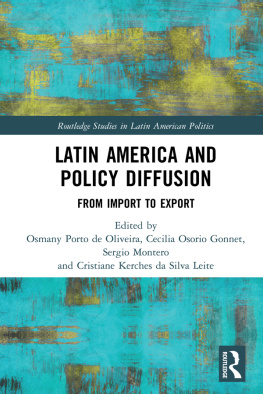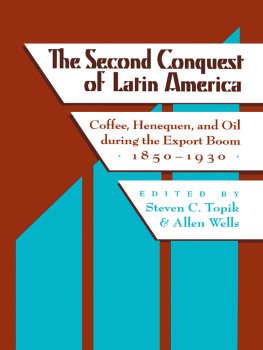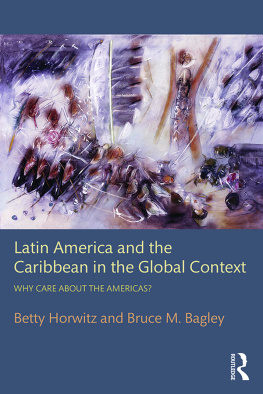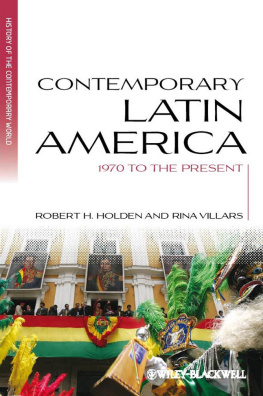Cover
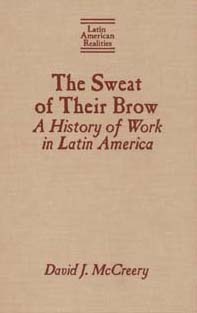
| title | : | The Sweat of Their Brow : A History of Work in Latin America Latin American Realities |
| author | : | McCreery, David. |
| publisher | : | ME Sharpe, Inc. |
| isbn10 | asin | : | 0765602075 |
| print isbn13 | : | 9780765602077 |
| ebook isbn13 | : | 9780585383231 |
| language | : | English |
| subject | Labor--Latin America--History. |
| publication date | : | 2000 |
| lcc | : | HD8110.5.M33 2000eb |
| ddc | : | 331/.098 |
| subject | : | Labor--Latin America--History. |
Page i
The Sweat of Their Brow
Page ii

Robert M. Levine, Series Editor
AFRO-BRAZILIAN CULTURE AND POLITICS
Bahia, 1790s1990s
Hendrik Kraay, Editor
BITITA'S DIARY
Childhood Memoirs of Carolina Maria de Jesus
Carolina Maria de Jesus, Author
Robert M. Levine, Editor
Emanuelle Oliveira and Beth Joan Vinkler, Translators
FIGHTING SLAVERY IN THE CARIBBEAN
The Life and Times of a British Family in Nineteenth-Century Havana
Luis Martnz-Fernndez
FROM SAVAGES TO SUBJECTS
Missions in the History of the American Southwest
Robert H. Jackson
MAYA REVOLT AND REVOLUTION IN THE 18TH CENTURY
Robert W. Patch
PILLAGING THE EMPIRE
Piracy in the Americas, 15001750
Kris E. Lane
POLITICS AND EDUCATION IN ARGENTINA, 19461962
Mnica Esti Rein
Martha Grenzeback, Translator
THE SWEAT OF THEIR BROW
A History of Work in Latin America
David J. McCreery
THE SWORD OF HUNGER
A Latin American History
Roberta Delson and Robert M. Levine
(forthcoming)
Page iii
The Sweat of Their Brow
A History of Work in Latin America
David J. McCreery

Page iv
Copyright 2000 by M.E. Sharpe, Inc.
All rights reserved. No part of this book may be reproduced in any form
without written permission from the publisher, M.E. Sharpe, Inc.,
80 Business Park Drive, Armonk, New York 10504.
Library of Congress Cataloging-in-Publication Data
McCreery, David J., 1944
The sweat of their brow : a history of work in Latin America / David J. McCreery.
p. cm. (Latin American realities)
Includes bibliographical references and index.
ISBN 0-7656-0207-5 (cloth : alk. paper)
1. LaborLatin AmericaHistory. I. Title. II. Series.
HD8110.5.M33 2000
331'.098dc21 00-020702
Printed in the United States of America
The paper used in this publication meets the minimum requirements of
American National Standard for Information Sciences
Permanence of Paper for Printed Library Materials,
ANSI Z 39.48-1984.

BM (c) 10 9 8 7 6 5 4 3 2 1
Page v
Contents
Series Foreword | vii |
Acknowledgments | ix |
Introduction | |
Chapter 1: Encounter and Accommodation, 14801550 | |
Chapter 2: The Colonial System, 15501750 | |
Chapter 3: Cities and Towns, 17501850 | |
Chapter 4: Export Economies, 18501930 | |
Chapter 5: Work in Modern Latin America | |
Conclusions | |
Notes | |
Sources and Additional Readings | |
Index | |
Page vi
This page intentionally left blank.
Page vii
Series Foreword
David McCreery's study of the history of work in Latin America breaks new ground in several ways. It is the first comprehensive analysis of labor systems spanning the pre-Columbian period to the present. More often than not, historical treatments of social issues deal with either the colonial period or the post-independence period, but not both. We know, of course, that many ways of doing things and forms of behavior in modern times derive from historical experience. This holds true especially in Latin America, where the Spanish and Portuguese imposed their own social and legal institutions on their colonies, sanctioning neither leeway nor flexibility.
The author's choice to write about work, not labor, broadens the book's scope considerably. Labor history, he notes, typically examines the structure of labor unions, the ideological conflicts among their leaders, and the struggle to organize and to influence politics and social policies. The history of work, on the other hand, embraces a much broader perspective. How did the demands of the workplace impact family life? How did changing patterns of labor need affect demographic patterns? How did war (a deadly kind of "work"), insurgency, and revolution affect the rhythm of work? How did the institutions of encomienda labor (among American Indian populations); chattel slavery (for Africans), work drafts, debt peonage, forced conscription, sharecropping, and indentured servitude (common among new arrivals as well as the lower classes in general) impact the quality of life?
The issues related to work that this book explores are important as litmus tests of social attitudes and elite behavior. How did local, provincial, and national governments define vagrancy? What attitudes about "laziness" pre
Page viii
vailed over time? How did chronic un- and underemployment lead to an "underground" or "informal" economy in many countries, and what impact did this have on working conditions for those formally employed?
The author surveys, as well, the relationships between governments and working people. He investigates the legacy of conservatives, of populists, of military regimes, and of self-described revolutionaries on the world of workers' rights and conditions. He analyzes the impact not only of export agriculture and raw material production, but of rapid urbanization and industrialization during the second half of the twentieth century. His study addresses the issues that make up the debate over free trade and NAFTA, the North American Free Trade Association, which links Canada, the United States, and Mexico. He examines the impact of the lack of social security and welfare nets in Latin America among populations with high (and mostly permanent) populations of unemployment. The Sweat of Their Brow, then, is not only a useful guide to the social and economic and labor history of the region, but it will also be useful to future analysts if today's gap between the rich and the poor continues to widen and if unbridled globalization brings further instability to the delicate balance between government, workers, and employers.
Next page


